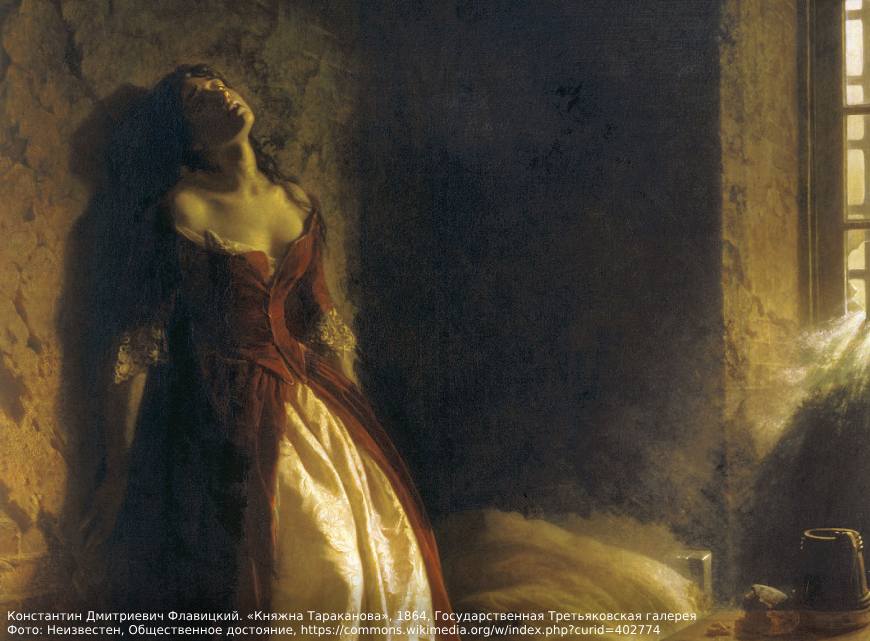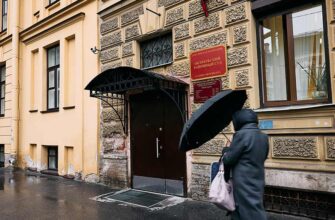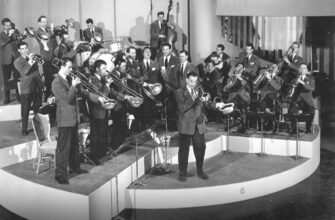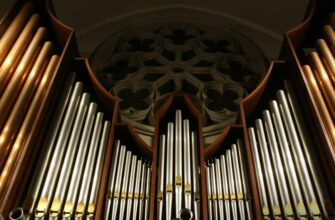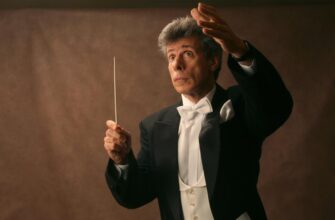The Epiphany festival at Novaya Opera is preparing to give his listeners one more premiere – the Opera “the Imposter” by composer Valerie Besedina, written to a libretto by Svyatoslav Besedin and directed by Nadezhda Stolbova. The creation, first performed in the full chamber version in the Mirror Foyer of the theater, will be revealed on 09 Feb 2017.
Epoque of Catherine II arose interest of the greatest philosophers of XVIII century, it attracted researches and authors of XIX century, and until now it is one of the most controversial and attractive in the Russian history, because the issues of those years are still lingering in the air. This applies both to political and social dilemmas, and to the eternal questions of love and meaning of life. Everyone finds own answers these questions in accordance with his views and objectives.
Valeria Besedina, who author of the idea of the opera, found their inspiration for the real Russian opera, and invested there her love of motherland and proposed the author’s view on the Queen. Before the premiere she found the opportunity to share with the readers of “E-Vesti” with creative idea and to unveil the secrecy of the premiere.
EV: Tell me, please, why You addressed the theme of “Imposter”?
Valeria Besedina: In 1997 I had the premiere of the ballet “Sulamith. Biblical history” in the Music Theater of K. Stanislavsky and V. Nemirovich-Danchenko, in a brilliant staging of the outstanding choreographer Dmitry Bryantsev. After success of the premiere I designed to write Russian historical Opera in the tradition of M. Mussorgsky, N. Rimsky-Korsakov. It should be created in modern musical language, but with the emotions and the intensity corresponding to tradition of our great masters.
I turned to the era of Catherine II, because at the time of the 1997 and 1998 there was no play about Catherine the Great. I worked for many years on the historical documents, I’ve read a lot, and was looking for a librettist, the person who is familiar to the operatic drama.
To write the libretto for the Opera is a great art and, unfortunately, my search lasted for 12 long years. Imagine my surprise when my 18-year-old son, a student of the faculty of musical theater of GITIS, brought the perfect text ready for some musical episodes. Although by that time he already had published two books of poetry, “Inamarie” and “Allusions”, I did not expect that he will cope with such a complex art form like opera librettos. When we started working together, all was developing rapidly, and the Opera was soon completed.
Fragments of the Opera (choir, orchestra) were first performed in the Krasnoyarsk Opera and Ballet Theater on 5 February 2012. And on 09 February 2017 in the New Opera will be presented more fully story, a psychological disclosure of images option. This is a complete chamber version, where will participate the chamber choir of the Novaya Opera Theater. Of course, in this form you’ll see no crowd scenes, no big choirs, which are peculiar to the traditions of Russian Opera.
EV: What exactly attracted You in the Catherine epoch and the image of the Princess Tarakanova-Vladimirskaya?
Valeria Besedina: The era of Catherine II the great was very eventful. But for me it was interesting to reflect in music such a personality as Catherine, and to oppose it is another interesting figure, those of adventuress, the Princess of Vladimir, who tried to claim the Russian throne. We have the image of an Imposter, which is a Princess. We don’t call her with her later name Princess Tarakanova, nor with the name of the Princess of Vladimir, as she called herself, but just the Princess.
When You visit the play, You will see our main stage – the duel of these two bright and strong women. History is silent, whether they had a meeting. There is a speculation that Catherine could not resist and looked at the Princess, but it is not proved by any documents. Therefore, in our Opera, in accordance with the historical facts, we submit them to meet each other as a vision. Whether vision of Catherine, whether vision of Princess.
I often ask the question to people who know Russian history and the era of Catherine, what features made her strong, what are her main achievement, her greatness? “She was strong, – they answer me – because she knew how to choose talented people in her environment, and with their help she did great things for Russia. Opera is patriotic, but it’s not “jingoism”, it is patriotic because it combines Russian traditions of music, plus the melodic language and the text of the opera are Russian too. Young author-librettist had written in 2011 words that became prophetic: “…now Europe is angry because of our bright victory. Who can forgive it?”. Or this sentence: “You had not lost an inch of Russian land, but increased the Empire. And Crimea is now ours, Russian!”.
EV: And the musical material is inspired by Russian music: M. Mussorgsky and others?
Valeria Besedina: There are no quotes, of course not, it is completely author’s writing. But the overall structure of Opera, its themes, rapid development of characters and their characteristics – all this is in the tradition of Russian Opera.
When on November 1 at the festival “Moscow autumn” we played incomplete chamber version, the hall was crowded, and 36 seconds after the end of the Opera there was a silence in the hall. In the finale of the Opera even the men admitted that they had a lump in throat, so great was the tension and empathy of the situation that ends our Opera.
EV: Please tell me if You set the task of writing a traditional Russian Opera… Do we have now such type in modern music?
Valeria Besedina: You know, I didn’t meet new Russian Opera for the last 10 years. But it may be so not because our land is lacking in talents, my colleagues create a vibrant and talented music, but because it is very difficult nowadays to find the way to the listener.
To write an Opera is one thing, to bring it to the stage is another thing, it is difficult. Of course, I dream to see the opera “the Imposter” in the full version as it is written, with a large Symphony orchestra and large choirs, in three acts, in a beautiful historical costumes, impressive and glorified the Russian culture. I would like, with God’s help and with the help of the ruling structures, to bring it to viewers of different countries.
We know that the “iron curtain” was lifted with the help of the Bolshoi theater, the ensembles of Moiseyev and Alexandrov. Moreover, this Opera in our difficult and contradictory time can serve as a bridge to re-establish relations of Russia and Europe. Catherine is a great woman who was born in Germany, but she became the greatest Russian Empress.
Here is deep patriotism, which revealed the image of Catherine as a suffering woman, a wise mistress, who overcame enormous difficulties for our Motherland, for the prosperity of our nation. And our President says we need to be mindful of Russian history, and to reveal it on the stage different scenes.
EV: Tell me, please, whether there is, in modern language, the Opera target group? I mean some kind of social stratum, to which you would like to convey these ideas.
Valeria Besedina: In terms of age, there are people from 10 years. It is important and necessary for young people. Older generation finds here a lot of interesting things from the national life, the new reading of the famous story. So actually our audience starts from 10-12 years and is up to 100 years.
I know that we have the performances in Krasnoyarsk that visited adolescents aged 12 years. I was later told that one child got such an impression that he began to study music seriously. He felt the impact of the story, the history of the Opera and went the way of the choral lines to sing Russian music and to participate in historical productions.
And I also know that at the performance of November 01 again were seen teenagers of 14 years, who came home and delved into the Internet and began to download information about the era of Catherine.
There is an interesting point, to the play we have staged on 1 November we attended the dancers, where the youngest just turned 18 years old, and the oldest, the National Artist of the USSR, the famous tenor Vladislav Piavko Ivanovich turned 76 years. Can you imagine what the age amplitude of the artists?
All of them rehearsed with passion, selflessly, free of charge. Of course, we need funding to bring Opera to the full version, but not everything is measured by money. Now the Director Nadezhda Stolbova, a talented Director, is flying from Krasnoyarsk to produce an Opera, to conduct rehearsals. This composition is my happiness, when performers refer to the play with all their souls, and the spectacle is created by associates.
